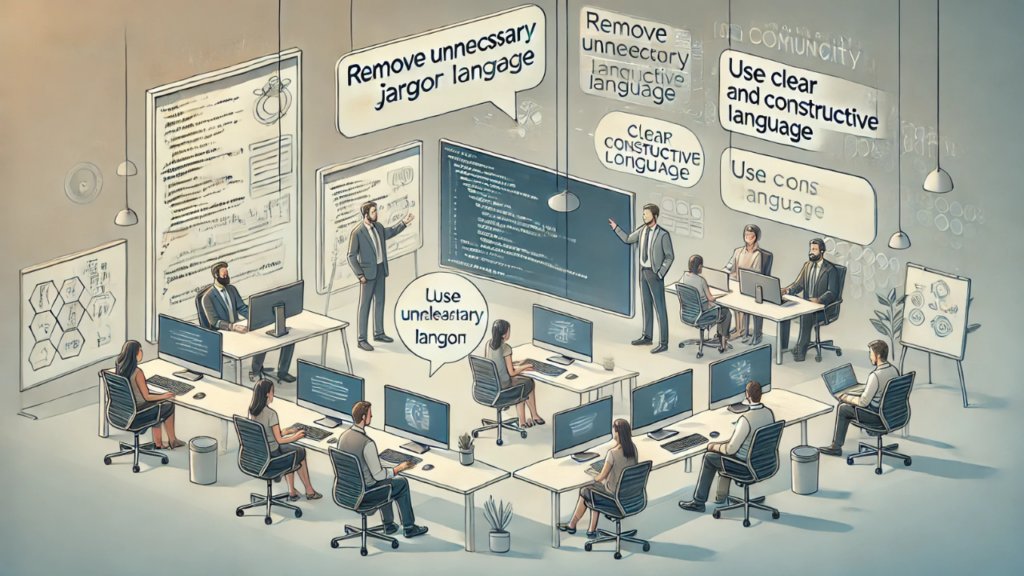As a developer, words matter as much as your code. Communication can either strengthen teamwork or create roadblocks. Certain phrases, when spoken too often, can frustrate team members and stifle innovation. Here’s a look at nine phrases developers should avoid—and what to say instead.
1. “It Works on My Machine.”
This phrase is infamous in the developer community. While your code might run flawlessly in your environment, it doesn’t solve the actual issue when it fails elsewhere. Instead of shutting down the conversation, collaborate to find the root cause. It could be a dependency mismatch, configuration issue, or untested edge case. Remember, code that only works on your machine isn’t reliable code.
What to Say Instead: “Let’s figure out why it’s not working in the target environment.”
This approach shows accountability and fosters teamwork. Resolving such issues together strengthens problem-solving skills and improves system reliability.
2. “That’s Not My Job.”
In a collaborative field like software development, this phrase can be damaging. Flexibility and teamwork are crucial to achieving common goals. Refusing to step outside your role may limit your growth and negatively impact team dynamics.
What to Say Instead: “I don’t usually handle this, but I’m willing to help or learn.”
Adopting a helpful mindset not only builds trust but also enhances your skill set. Over time, taking initiative can open up new opportunities and increase your value within the team.
3. “I Can’t Fix That.”
Saying you can’t fix something signals defeat, which doesn’t inspire confidence. Developers are problem-solvers by nature, and tackling tough issues is part of the job.
What to Say Instead: “This looks challenging, but I’ll explore possible solutions.”
This conveys determination and a willingness to learn, both essential traits in tech. Tackling difficult problems head-on demonstrates resilience and sets a positive example for others.
4. “It’s a Small Change.”
Underestimating the complexity of changes can lead to unrealistic expectations and rushed work. Even minor tweaks can have ripple effects, especially in large systems.
What to Say Instead: “I’ll assess the scope and let you know the estimated effort.”
Setting clear expectations helps avoid last-minute surprises and builds trust. Accurately evaluating changes ensures smoother workflows and better project outcomes.
5. “I Didn’t Test It.”
Skipping testing can lead to critical errors. It reflects poorly on your professionalism and risks breaking production systems.
What to Say Instead: “I’ve tested it thoroughly and verified the results.”
Testing isn’t optional—it’s an integral part of delivering quality code. Thorough testing ensures reliability and reduces the risk of bugs reaching end users. By prioritizing this step, you safeguard your reputation as a responsible developer.
6. “That’s Impossible.”
Declaring something impossible discourages innovation. The tech industry thrives on solving seemingly insurmountable problems.
What to Say Instead: “This seems difficult, but let’s explore potential solutions.”
Staying open-minded often leads to breakthroughs. What seems impossible today might become achievable with creativity and collaboration. Challenging assumptions is how groundbreaking advancements are made.
7. “It’s Not a Priority.”
Dismissing concerns with this phrase can create frustration. Prioritization is necessary, but so is clear communication about why certain tasks take precedence.
What to Say Instead: “Here’s why we’re focusing on other tasks right now. Let’s revisit this soon.”
Transparency and empathy prevent misunderstandings and keep teams aligned. Clear communication about shifting priorities fosters mutual respect and teamwork.
8. “We’ve Always Done It This Way.”
Clinging to old methods can stifle innovation and improvement. The tech world evolves rapidly, and so should your practices.
What to Say Instead: “Let’s evaluate if this approach is still the best option.”
Encouraging fresh ideas keeps your team adaptable and competitive. Embracing change fosters continuous improvement and ensures you stay ahead in a dynamic industry.
9. “This Bug Isn’t My Fault.”
Blaming others or external factors for bugs doesn’t solve problems. It can also damage team morale.
What to Say Instead: “I’ll look into this and collaborate to find a solution.”
Taking ownership fosters trust and speeds up issue resolution. Addressing problems proactively creates a culture of accountability and strengthens team cohesion.
The Importance of Words in Development
Your choice of words reflects your mindset and professionalism. Positive, solution-focused language not only improves team dynamics but also enhances your reputation as a developer. Avoiding these nine phrases can transform how you communicate and collaborate. By adopting constructive alternatives, you can foster a healthier and more productive work environment.

Conclusion
Eliminating unhelpful phrases from your vocabulary isn’t just about sounding better—it’s about fostering a growth mindset, improving team collaboration, and staying adaptable in a fast-paced industry. By replacing these phrases with proactive and constructive alternatives, you’ll strengthen your professional relationships and open doors to innovation.
At StartupHakk, we believe in empowering developers to thrive. Words matter just as much as code. Let’s build a culture of positivity and problem-solving—one phrase at a time. Communication is the foundation of progress, and together, we can elevate the standards of teamwork and innovation.




